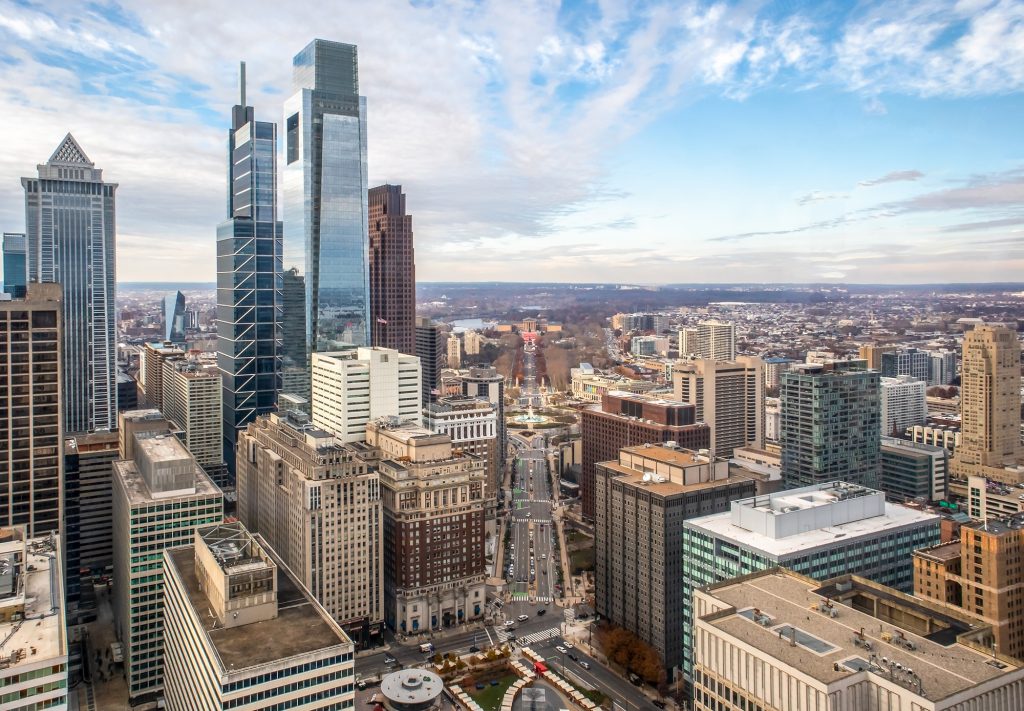The COVID-19 pandemic has brought the Delaware Valley’s economy to a screeching halt. However, there is reason for optimism in our region once we emerge from this crisis.
As a general matter, the United States has thrived right after major disruptions to our economy. Following World War I and the Spanish Flu pandemic, we entered the Roaring Twenties. Following World War II, we entered the Baby Boom and the largest economic expansion in our history up to that time. More recently, we just ended one of the longest economic expansions in United States history following the Great Recession of 2008.
Beyond these general types of rebounds, however, there are four reasons why our region may uniquely thrive once this pandemic ends.
- Geography will finally work to our advantage. For years, Philadelphia has tried to sell itself to businesses based on its proximity to New York and Washington, D.C. Unfortunately, it’s exactly that proximity that has hampered our growth. Why move your business to a city that is close to where you really want to be when that ideal place is only two hours away? Just look at Amazon. They split their highly coveted headquarters between these two markets two hours to our north and south and bypassed us completely. Things going forward may be different. Emerging from this COVID-19 crisis, companies will embrace remote working to a much larger degree and, as a result, won’t expect everyone to be in the office every day. That’s a game changer as it will allow companies to draw talent from a much broader geographic area thereby enabling them to locate their offices in cheaper cities like Philadelphia. One- or two-hour commutes won’t prevent people from taking a good job if it’s not an everyday thing. Remote working may also result in a lot of New Yorkers relocating to Philadelphia even if their job is in Manhattan. Whereas someone may have thought long and hard about living in Philadelphia and commuting to New York City five days a week, they might feel very differently if they only need to travel there five or 10 times a month, especially if they can buy a house or condo here for a third or half the price.
- Our “Eds” will lead the wave of the future. For years we have been touting our “Eds and Meds” economy. Well, the education part may take front and center stage post COVID-19. By necessity, schools around the country have been forced to adapt to a virtual classroom. This transformation happened overnight and without any preparation. As a result, it’s been a bumpy transition. However, we are going to perfect virtual learning in the coming months and it will become an integral part of our national education system in the future. Given that we have more colleges and universities than virtually any other city in the country and are blessed with visionary leaders like Amy Gutmann and John Fry, would you bet against us as the place that figures out how to provide affordable (and maybe virtual) college education for everyone?
- Our “Meds” will be more important than ever. Over the past several months, each of us has come to appreciate how important it is to have access to the highest quality medical care. Which city would you want to be living in right now if you needed hospitalization, New York or Philadelphia? We are home to some of the best hospitals and healthcare systems in the world and are at the vanguard of new gene therapy and immunotherapy. Going forward, quality of healthcare and ability to access it will be much more important to people and companies when deciding where to locate. We should be towards the top of everyone’s lists.
- Our parks and walkability will make us the city of the future. You don’t appreciate the abundance of grass in Philadelphia until you move here from the suburbs with a dog who won’t poop on concrete. Trust me. I know from experience. When visiting my children in New York City, I walked for 40 minutes until my poor dog could relieve herself. In Philly she’s always five minutes away from a “bathroom.”
William Penn was prescient when he incorporated five city squares into his plan for Philadelphia including what are now known as Rittenhouse, Logan, Franklin, City Hall, and Washington Squares. About 150 years later, Philadelphia created Fairmount Park and, thereafter, Penn’s Landing and the Schuylkill River Trail. You don’t get proximity to large, green spaces in New York City unless you’re rich enough to live by Central Park.
The beauty of Philadelphia is that it was planned before we had cars. That means you can walk almost anywhere including to your office. Given your choice between commuting via crowded public transportation in New York City or walking in Philadelphia, which will most city dwellers prefer in the future?
Conclusion
These are extremely hard times for all of us as we struggle to come to terms with in-home quarantines and the looming recession. However, this is not the first catastrophe we have faced, and history tells us that, as a country, we can expect prosperity when this is over. However, for Philadelphia, the future may be particularly bright as people start to focus on what is really important in life and the simple pleasures. Let’s get through this crisis and then seize the day.
This article was published in the Philadelphia Business Journal on May 8, 2020.
